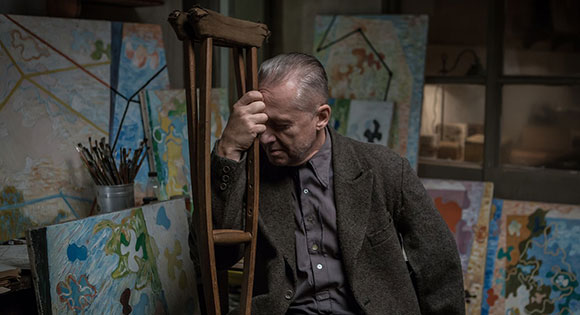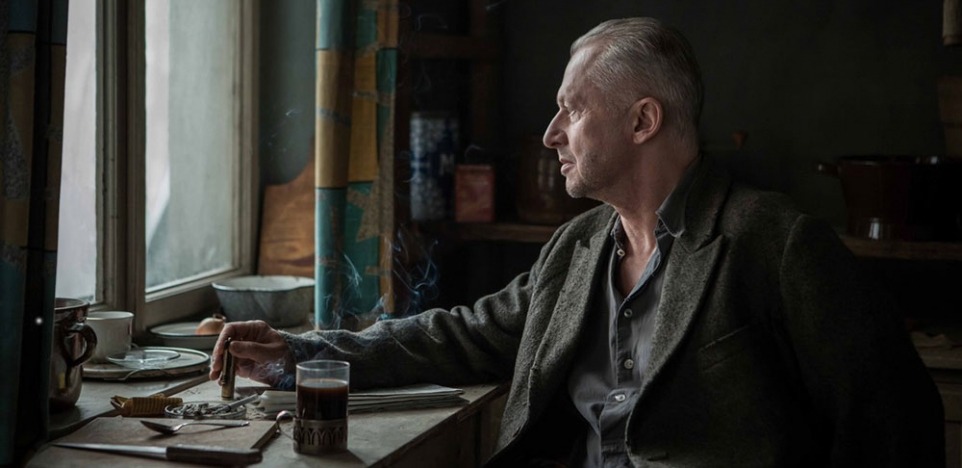Polish filmmaker Andrzej Wajda made many serious and sober films about the history of Poland. His masterpiece was Man of Marble (1977) in which he explored the rise and fall of a working class hero. In his final film before his death at age 90, Wajda probes the life and art of Wladyslaw Strzeminski, a Polish avant-garde painter who was relentlessly persecuted by his political overlords and became for many young people a fighter for artistic freedom.
During World War I, Strzeminski (Boguslaw Linda) was badly injured and lost an arm and a leg. In his 50s, this former leader of the Constructivist movement, is a famous painter and a champion of abstract art. He teaches at the Higher School of Visual Arts in Lodz, an institution he helped to co-found.

In the 1950s, the Communist government issues a series of guidelines for only "Socialist Realist" art. When Strzeminski refuses to follow the party line he loses his teaching position. His works are withdrawn from public view and some of the paintings are destroyed. And, as if this oppression were not enough, the artist is hindered in his desperate need to earn a living as a lowly sign-painter.

In this intense biopicture, director Wajda graphically shows how this creative and popular artist is worn down by one attack on his spirit after another. Instead of reaching for the lifelines offered by his young daughter (Bronislawa Zamachowska) or the adoration of a student (Zofia Wichlacz), Strzeminski opts to carry on his struggle to survive alone.
Wajda make 40 feature films in a career spanning sixty years. In 2000, he was awarded an honorary Oscar for his contribution to world cinema.
